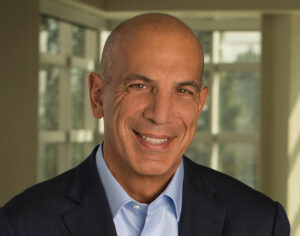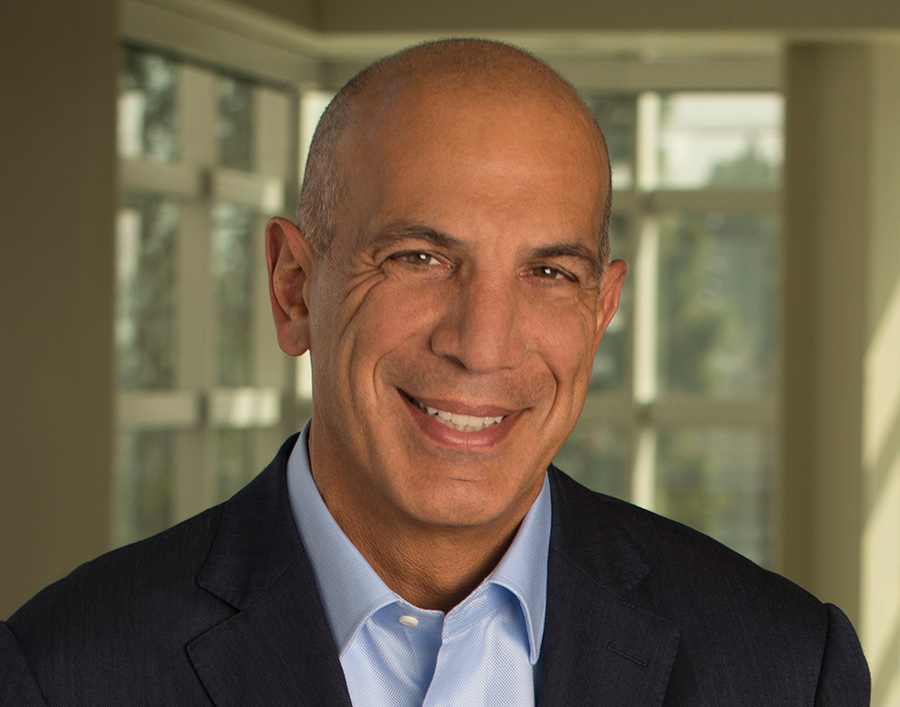 Mike Mussallem has served as Chairman and Chief Executive of Edwards Lifesciences since Baxter International spun-out Edwards in 2000. As is the case with many CEOs navigating the global COVID-19 pandemic has been an entirely new career challenge for the veteran leader.
Mike Mussallem has served as Chairman and Chief Executive of Edwards Lifesciences since Baxter International spun-out Edwards in 2000. As is the case with many CEOs navigating the global COVID-19 pandemic has been an entirely new career challenge for the veteran leader.
In early April, Mussallem will participate in a Main Stage discussion at the Health Evolution Summit with Joe Almeida, Chairman, President & CEO of Baxter, Julie Kim, President, Plasma-Derived Therapies at Takeda Pharmaceutical Company, and Bernd Montag, CEO of Siemens Healthineers, that will be led by Amy Abernethy, MD, President, Clinical Research Business, Verily and former Principal Deputy Commissioner, FDA. During the discussion, the executives will examine the interplay between innovation, resilience, affordability, health equity, and trust.
Read all of our 2022 Summit articles
Leading up to the 2022 Health Evolution Summit, we interviewed Mussallem about a range of topics, including earning recognition as an ethical company, balancing innovation and resilience amid the pandemic, increasing the number of underserved heart patients its offerings help and more.
At the upcoming Health Evolution Summit, you will be participating in a discussion examining lessons learned about balancing innovation and resilience during the pandemic. Let’s start there. COVID-19 has obviously been a very difficult time for many leaders in health care. How have you managed to strike a balance between the two during the pandemic?
Mussallem: I am immensely proud of our team at Edwards Lifesciences, and humbled by their efforts, and the dedication and commitment of our clinician partners, to ensure as much as possible the continuity of patient care as the global pandemic has continued. We have been clear with our employees that our focus has always been on maintaining their safety while also ensuring our progress with advancing our research and development and clinical studies, building strategic capabilities and advancing infrastructure investments. Over these last two years, our employees have remained dedicated to keeping our commitments to patients and to one another. Edwards has operated for many years with a resilient supply chain approach, and certainly the unique circumstances of the last two years tested this. Through our team’s efforts and in particular their innovative ways to support hospital procedures, we were able to get our technologies into the hands of our trusted partners around the world so they could serve their patients. Our unifying patient focus has helped us to come together and balance innovation and resilience during the particularly challenging moments.
Last time we interviewed you was June 2020, the pandemic already in full swing. Edwards Lifesciences was amid unique partnerships with UPS to supply ICU monitoring equipment to hospitals, providing grants to some 20 partner organizations to help support safety-net systems and focusing on corporate culture. What has changed since or what new initiatives and developments has the company undertaken?
Mussallem: We are celebrating 22 years as an independent company, and we have always tried to be thoughtful about operating with a multi-stakeholder model, with a particular focus on patients, employees, our communities and customers. When the world entered this incredibly unusual time with the pandemic, and as a global community we also faced calls for social justice, health equity and more sustainably conscious initiatives, I would not say that much changed in relation to our work or focus. However, it did strengthen our convictions around how we as a company and global community can help effect change. We are proud that we have been able to continue our partnerships with nonprofit organizations around the world focused on our Every Heartbeat Matters philanthropic initiative. After reaching our initial goal, we have set an even bolder goal that, by the end of 2025, we will improve the lives of 2.5 million additional underserved structural heart and critical care patients. In 2021, we also announced Edwards’ Social Impact Investment Fund, in which we have created a $100 million fund as a new portfolio of investments aimed at advancing racial equity through economic development, especially in predominantly Black and underserved communities in the U.S. This initiative is aligned with our values and with the elements of our credo focused on creating a community unified in its mission to improve quality of life.
One of the accolades Edwards Lifesciences has earned is being named among the World’s Most Ethical Companies, multiple times including 2021. How as CEO do you shape the culture to concentrate on ethical business practices?
Mussallem: Thank you, while we do not maintain sustainability commitments for the purpose of recognition or awards, we are humbled that our actions and commitments have been recognized by numerous organizations. We know our reputation and integrity are central to Edwards Lifesciences’ ability to be successful globally. Integrity is a key ingredient in building and maintaining our relationships as trusted partners, both internally and externally. I know it begins with me and extends to our more than 16,000 employees worldwide, which is a continuous priority — and challenge — as we keep growing. We want to be chosen by partners and customers for our proven heart valve and critical care technologies and high-quality service. As an organization, we spend a lot of time talking about how and why we need to conduct business in a responsible way, along with our policies and practices. Part of this is discussing with employees when we may have fallen short, and also in celebrating those employees who come forward with examples of situations where they chose different actions or raised concerns when something didn’t seem right. We also hold our leadership team accountable for maintaining an ethical work environment and remind our employees consistently that the best way to ensure our ability to continue serving patients over the long term is by conducting our work with integrity, honesty, openness and fairness.
You have been CEO of Edwards Lifesciences since 2000 and before that you were with Baxter since 1979. During the course of your career, what have been the most important developments in life sciences? And the biggest disappointments or areas where the industry has made too little progress?
Mussallem: I regularly reflect on the fact that the way medicine is practiced today is so much more advanced than what our grandparents or parents experienced, and I have to believe that what we are doing today will pale in comparison to the advancements that we will see in the generations ahead. While there have been incredible advancements across medicine, much of my career has been devoted to cardiovascular and critical care, so I’ve had the privilege to witness those advancements close up. It is meaningful that today, our clinical partners can treat patients with catheter-based therapies that just more than a decade ago did not exist. They can perform a valve replacement on an ill patient, send them home in as little as a day, and these patients are returning to their lives very quickly. A recent white paper from USC Schaeffer Center looked at the social value of this therapy, transcatheter aortic valve replacement, and found positive social value spanning groups of different ages and comorbidities. Separate from this, I am also very excited about the opportunities for use of artificial intelligence and machine learning to enhance the patient experience and care delivery. A number of Edwards’ technologies are utilizing big data and AI to guide the care of the critically ill, for example, by alerting to a potential low blood pressure event before it occurs. With this, I know there is still much more work to do – sadly, we still see vast undertreatment or delays in treatment until heart valve diseases are more dire. These challenges are further compounded when considerations of health equity come into the conversation. Some of these challenges will be solved by advancements in technology, but other solutions will need to come through education and collaboration.
Coming back to innovation and resilience, throughout the crises of 2020-2022, what gives you hope for the future?
Mussallem: The global health care community has demonstrated incredible dedication, focus and resilience while sustaining both urgent and routine patient care throughout these last two years. While this pandemic has also brought to light challenges and struggles — for instance, how to ensure patients with chronic and debilitating conditions like heart valve disease can still receive treatment, and now the health care professional staffing challenges faced by hospitals in particular in the U.S.— it has also shown that there are incredible opportunities for collaboration and innovation. I have been impressed with the speed by which the health care community has responded, and the rapid learning and adoption of treatment approaches even in the face of uncertain or incomplete information. It gives me hope for the future. I’m optimistic that we’re just getting started with respect to the innovations and greater patient impact we can have at Edwards, and I feel similar optimism for the global health care community.
Related articles:
Summit 2022: Walgreens CEO Roz Brewer on improving the patient journey
Summit 2022: BCBSA’s Kim Keck on her first year as CEO
Summit 2022: Tom Insel on why it will take ‘a social movement’ to fix the U.S. mental health care crisis
Clinical research 2.0: An interview with Verily Life Sciences’ Amy Abernethy
Why Edwards Lifesciences is investing $100 million in a social impact fund










